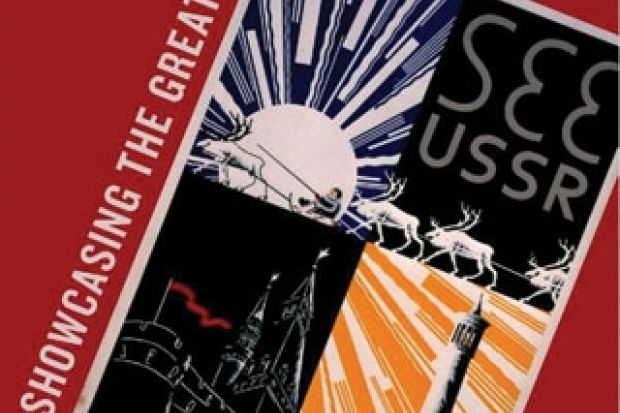On a recent train trip from St Petersburg to Moscow, the woman seated next to me took full advantage of an unexpected four hour and 10 minute opportunity to regale “our American guest” with a sincere, although often contradictory, narrative of Russian superiority. First she hastened to assure me that her employer, the Russian State Library (formerly the Lenin Library) in Moscow, has “the largest holdings in the world, larger than your Library of Congress”, but as soon as the refreshments cart arrived at our row, she advised me excitedly to “take the cognac, it’s German”. Showcasing the Great Experiment re-examines the heyday of the awkward romance between Soviet leaders and sympathetic Western intellectuals in the interwar years. The story of this relationship has been told before; Michael David-Fox’s use of the Soviet superiority-inferiority complex as a prism through which to view the dynamics of this affair not only makes for interesting reading, but offers a suggestive paradigm for understanding the many phases of “showcasing” that have followed to this day.
In the 1920s and 1930s, tens of thousands of Western visitors came to see the new civilisation that was being built on Europe’s periphery. For the most part, they were left-leaning intellectuals and artists who sympathised with the Soviet cause. The attraction of high-profile figures such as Romain Rolland, André Gide, George Bernard Shaw, Lion Feuchtwanger and Paul Robeson – to name just the most famous of a vastly larger cohort – has almost always been interpreted on the basis of the pronouncements and writings of these “fellow travellers” after visiting socialism-in-the-making and sometimes Stalin himself, in person.
Were they so blinded by Soviet dissembling as to not see the reality of famine behind the model agricultural stations, or the murderous scripting of Stalin’s show trials? David-Fox’s book makes extensive use of previously unopened Soviet archives to reveal a much more complicated – and frankly more believable – dynamic between several different parties. He describes Westerners who “knew the rules of the game of Soviet friendship” and consistently enacted self-censorship, whereby their public statements reiterated the positive evidence of Soviet achievements and anti-fascist initiatives, while their private correspondence and the reminiscences of their Soviet interpreters make it clear that the celebrated visitors were often disillusioned, critical and prone to vocally challenging their Soviet handlers.
More importantly, the key Soviet mediators responsible for guiding the impressions of foreign guests were themselves cosmopolitan intellectuals who had spent years in various diplomatic, cultural or temporary émigré capacities in European capitals. They had no reason to feel inferior to their guests; on the contrary, the mutual attraction and admiration Western leftists and Stalinist Westernisers (as this book calls them) held for each other allowed both sides to flatter themselves that one was influencing the other. By 1937, however, the same characteristics that had made the Stalinist Westernisers effective cultural diplomats were now turned against them. The interwar era of engagement had come to an end, as the two conflicting imperatives of Stalinism – asserting international cultural dominance versus unmasking pernicious infiltration from abroad – tilted violently towards the latter. We find that monolithic Stalinism actually comprised a series of shifting strategies for wooing admirers from the West. The Western gaze, on the other hand, crucially affected internal developments and even shaped the direction of the great experiment in social and cultural (not to mention hydroelectric) engineering.
“If you go to the USSR on an official visit, you will be used in the stupidest way,” someone warned Gide. “You will never see the USSR as it really is.” David-Fox’s marvellous book allows us to see things the way they really were.
Showcasing the Great Experiment: Cultural Diplomacy and Western Visitors to the Soviet Union 1921-1941
By Michael David-Fox
Oxford University Press, 416pp, £18.99
ISBN 9780199376421
Published 6 March 2014
Register to continue
Why register?
- Registration is free and only takes a moment
- Once registered, you can read 3 articles a month
- Sign up for our newsletter
Subscribe
Or subscribe for unlimited access to:
- Unlimited access to news, views, insights & reviews
- Digital editions
- Digital access to THE’s university and college rankings analysis
Already registered or a current subscriber?





